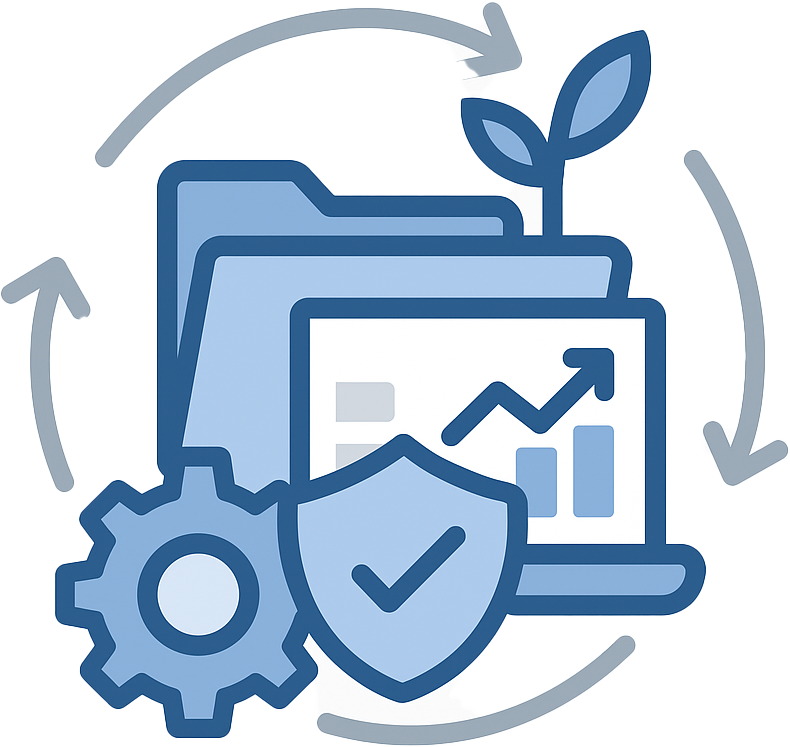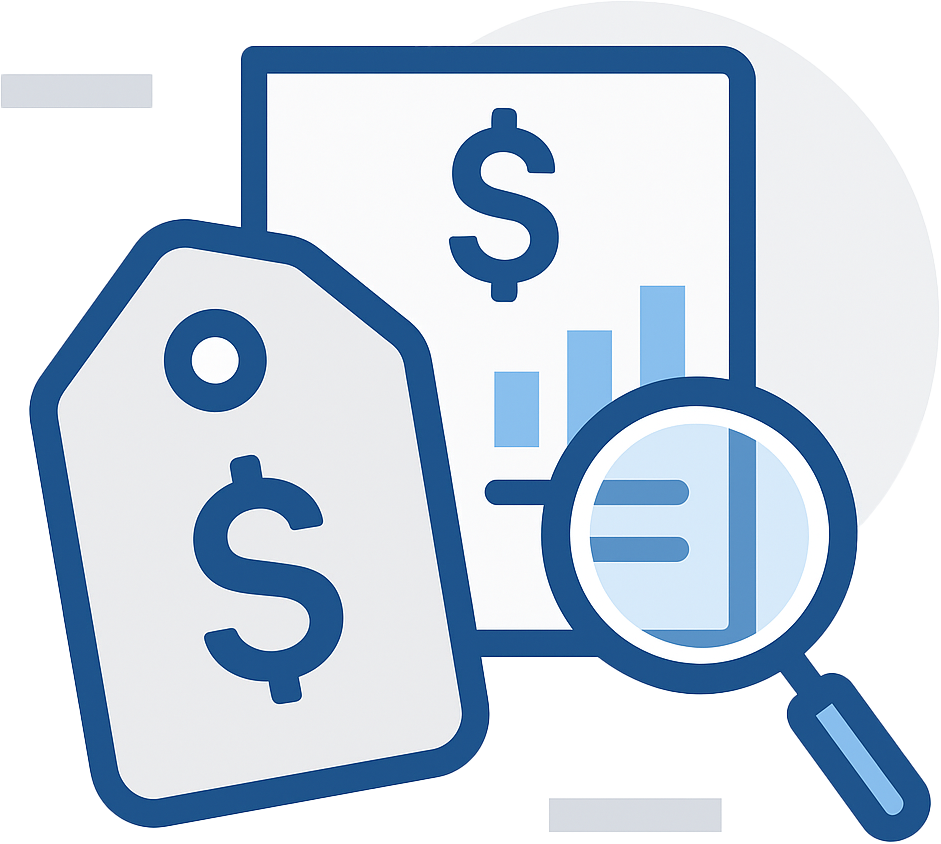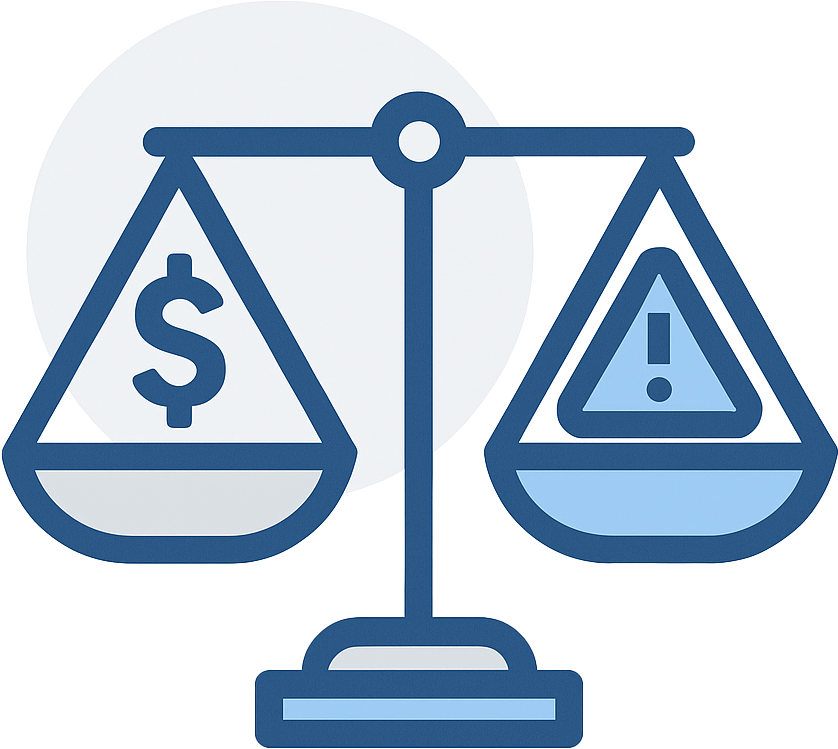Understand what sustainability reporting means, and how it relates to your company.
In today's world it's not good enough to simply make claims about your level of sustainability. It doesn't fly anymore. Now, businesses and organizations are being asked to provide tangible, credible demonstrations of their level of sustainability. While there are different avenues to demonstrate a commitment to sustainable practices, one of the more common ways is with reporting.
Sustainability is kind of like a moving target when we work with our customers. What do you think sustainability is? What sort of practices do you employ now, and how can we change in the future? What about the societal aspects of sustainability, such as your HR program, supply chain, and how you exist in your community? Are you interested in some form of sustainability certification, and if so, which one and for what reason?
For most folks this is not a cookie-cutter, one-stop-shop process. The harder question usually ends up being once they're making sustainable strides forwards, how can they best communicate that?
What is sustainability reporting?
There’s one thing that’s pretty consistent. Anyone who's looking into sustainability is doing it for two reasons.
To make this a better world for ourselves and future generations.
And to make money.
And there's nothing wrong with that.
Remember the triple bottom line of people, planet, and profit?
If you’re going to try and capitalize on sustainability in some form, you need to tell people about what you’re doing! And that, in a nutshell, is sustainability reporting in its simplest form.
So sustainability reporting is easy?
Not really. What I just said is an obnoxiously overly simplified explanation.
But at its heart, it's really the basis of what reporting is. It's communication.
When you report on your sustainable programs, actions, or practices, you are in some way, shape or form, communicating to others. Shareholders, employees, your community, buyers and consumers of your product, it doesn't matter who, it's just the fact you're communicating.
But, how you communicate is entirely up to you. Maybe it's a simple email blast. Maybe it's a speech at your annual dinner. Maybe it's a comprehensive informative book or guide published annually. Maybe it goes in your annual report. The choice is entirely yours.
You could report using charts, tables, graphics, videos, cartoons, whatever you want. The point is, you're getting your information across.

Does sustainability reporting need to follow a guide?
No, it doesn’t need to. Not at all. There are certain guidelines you could adhere to, such as GRI Reporting for one, but you can report however you'd like.
Just like I mentioned above, you can use any methodology you'd like to get your information across. The choice is entirely up to you.
However, if you're looking to adhere to a program, meet buyer guidelines, or want your reporting to be verified by a 3rd party, then you're probably going to have to look into reporting requirements, like GRI Reporting. It's not necessary, but by adhering to reporting guidelines, you'll make it easier for outsiders to review, verify, and confirm you're really making strides in changing.
You should always internally verify that your information is accurate, verifiable, and most importantly, means something!
Do I need to have a sustainability report to get the information out?
Again, no you don't. You don't need to do it. You could write an article about it on your website. You could send a flier out in the mail.
But if you're doing something big and grand and moving forward, why not let everyone know about it?
It's sort of like anonymous donors to charities. Some people don't want the publicity, they just want to do the right thing. If that's you, go for it.
But chances are your company is going to be looking at sustainability for not only environmental benefits but economic benefits as well. You're going to want to stay free from environmental issues, but also stand out in your market or industry and hopefully get more business.
Without reporting, you’ll be missing out on a lot.
For example, maybe there’s someone interested in buying your widget or your services who doesn’t want to buy from Brand X since they’re an environmental nightmare who employs child labor in unsafe conditions. Maybe they’d love to do business with someone who's a better steward of the environment. That's where you step in!
Sound ridiculous? Well, how about this example.
There are tons of businesses today (I’ll bet some you currently work with) who are developing their own sustainability programs. They want (need) to conduct business only with those who are on the same page as they are. If they’re sustainable, they’ll be looking for others who are also sustainable. They're going to want to incorporate other environmentally friendly companies in their sustainable supply chain.
Or, how about government agencies who are becoming required to only do business with sustainable vendors? Heard of LEED for construction projects? Credit is given for products coming from sustainable businesses, and lots of new construction is being required to be LEED, other sustainable certifications, or just built in a more environmentally conscious way. That definitely includes companies who are conducting reporting and can prove, and backup, their environmental claims.

Got it. Let's talk about how to write a sustainability report.
Again, this depends entirely on you and what you need.
I’ve seen sustainability reports that consist of a couple of pages put together by a business once per year which covers some very basic aspects of sustainability. It details a couple of things the business does, provides maybe a few very basic benchmarks (like we reduced our fuel use by X%), outlines their commitment to sustainability, and maybe goes over a few things planned for the following year. Simple, right?
But that’s kind of loose. That doesn’t follow any kind of formal structure for the reporting, so it becomes difficult to verify the claims made or to compare to others. That’s where formal reporting guidelines come into play.
There are several different types of formats for sustainability reporting (often called CSR for corporate social responsibility or corporate sustainability reporting) which are used in the “big leagues”. For example, if you’re a company operating worldwide which is listed on the New York Stock Exchange, you probably need to follow one of these standardized formats instead of winging it on your own.
One of the most commonly used ones, but one that’s fairly complex as it is comprehensive and covers the full spectrum of sustainability, is the GRI reporting guidelines which I mentioned above. GRI Reporting allows a company to follow a standardized reporting format that can be used to compare companies and to really evaluate what a company is doing. There are even industry reporting formats we’ve seen which tend to focus on industry-specific concerns or issues.
If you're going to be doing something simple and small then you could do it internally, or through hiring a consultant.
If you're looking at conducting a more formalized, stricter form of reporting, you're probably looking at hiring a bigger firm, someone like Deloitte.
So writing a report could be a simple procedure, or it could be a $1,000,000+ job for an outside company. It depends on you, what you need, and why your company is looking into reporting.
If you're wondering how to write one or want to see an example, here's the easiest way to look into it.
Go to Google, type in a company you like, know of, work with, compete against, whatever, and add in "sustainability report" after it. Chances are you'll get something back, and you'll be able to review that information either on their website or in PDF form.
For example, if you have an iPhone and want to learn more about Apple, then you could Google apple sustainability report.
Regardless of the size of your business or the complexity of your sustainable practices, you really ought to tell people about it.
Be transparent. Like I said, even if your operation is a train-wreck, you can still conduct reporting. You can easily outline where you are now, what your short, medium, and long- term goals are, and then report on that every year, regardless of the progress. Made more progress than you thought? Great! Let everyone know. Didn't meet the mark? That's ok too! Let everyone know why, and how you're going to improve next year.
Reporting is a good move regardless of the size of your company, even if you're not at 100% yet. And if you're hesitant to report, ask yourself why.
Sustainability is without a doubt here to stay. Not only will it become a requirement going forward (and like I mentioned above it already is in certain ways), it lets everyone know now that you're taking this seriously.
Let me give you an example. A great client of ours was recently bidding on providing their products for a new Google office building.
Yes, Google.
Part of bidding was providing proof of sustainability. Fortunately, they had EPDs and HPDs for their product. If you're unaware of what they are, those acronyms are short for environmental product declarations and health product declarations. Basically, they're nutritional labels for products, with EPDs providing information about the environmental impact of the product (such as greenhouse gasses used in production or eutrophication potential) and HPDs providing information about the health impacts of the products (such as carcinogens in the product).
These sustainability certifications for their products not only got them a foot in the door for bidding, but it landed them the job. Why? Because none of their competitors had any form of sustainability reporting or certifications to provide.
They landed a very lucrative job because of reporting. End of story.
But what happens next time they have to bid for something like this. Say Apple wants to buy their product. Next time around you can bet their competitors are going to be providing some sort of report to get a chance to bid on the job.
But is that sustainability reporting? Kind of. It’s still letting others know about your sustainability program and your overall level of sustainable performance. It can be simple and brief, or it can be complicated and thorough following internationally recognized reporting guidelines like GRI reporting. Really, it can be whatever you want it to be. The key is to get started, and get that information out there.
To learn more about becoming sustainable and how to spread your message, click here to contact us or give us a call at 609-693-8301 to discuss your sustainability needs today.












